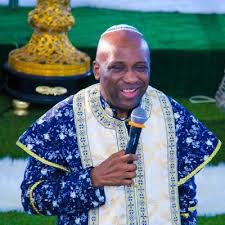World
How could Russia’s Putin be prosecuted for war crimes in Ukraine?
How could Russia’s Putin be prosecuted for war crimes in Ukraine?
U.S. President Joe Biden on Monday called for the prosecution of Russian President Vladimir Putin for war crimes over the discovery in Bucha, Ukraine, of mass graves and bodies of bound civilians shot at close range, but various challenges stand in the way.
IS TARGETING CIVILIANS A WAR CRIME?
Yes. The International Criminal Court in The Hague defines war crimes as “grave breaches” of the post-World War Two Geneva Conventions, which lay out humanitarian laws to be followed in war time. Attacking legitimate military targets where civilian casualties would be “excessive” also violates the conventions, legal experts say.
Bucha’s deputy mayor said on Sunday that 50 residents had been victims of extra-judicial killings carried out by Russian troops.
The execution of civilians, as alleged in Bucha, is a “quintessential war crime,” said Jonathan Hafetz, an international criminal law and national security scholar at Seton Hall University School of Law.
Russia’s defense ministry denies targeting civilians in what it calls a “special military operation” in Ukraine and says footage and photographs showing bodies in Bucha are “yet another provocation” by the Ukrainian government.
HOW WILL INVESTIGATORS COLLECT EVIDENCE?
Investigators will visit scenes such as Bucha and interview witnesses to build a case, experts said.
James Goldston in New York, executive director of the human rights advocacy organization Open Society Justice Initiative, said images and news reports from Bucha will allow investigators in Ukraine to follow up swiftly with survivors of some of the alleged atrocities.
Ukrainian forces have captured Russian soldiers, another avenue for obtaining evidence.
Some experts said, however, that prosecutors might have a tough time obtaining evidence from an active war zone due to safety concerns and witnesses who could be intimidated or otherwise reluctant to speak.
BUILDING A CASE AGAINST PUTIN AND OTHER HIGHER-UPS
For most war crime charges, investigators must prove intent, and a defendant’s guilt must be proven beyond a reasonable doubt, experts said.
Alex Whiting, a visiting professor at Harvard Law School, said the latest images will make the case easier to prosecute.
“The question then becomes, who’s responsible and how high up does it go?” he said.
Cases will be easier to build against soldiers and commanders but they can also pursue heads of state, experts said.
A prosecutor could present evidence that Putin or another state leader committed a war crime by directly ordering an illegal attack or knew crimes were being committed and failed to prevent them.
Experts say it is too soon to say whether the actions in Bucha were directed from the highest levels of the Russian government, but that if similar atrocities are committed elsewhere in Ukraine it could point to a policy or direction from top officials.
CAN THERE BE A TRIAL ‘IN ABSENTIA’?
The International Criminal Court’s chief prosecutor, Karim Khan, said on Feb. 28 he had opened a war crimes investigation following the invasion. Although Ukraine and Russia are not members of the court, Ukraine previously approved of an investigation dating back to 2013, which includes Russia’s annexation of Crimea.
The ICC will issue arrest warrants if prosecutors can show “reasonable grounds” to believe war crimes were committed.
However, neither Russia nor Ukraine is a member of the ICC, Moscow does not recognize the tribunal and is almost certain to refuse to cooperate.
Any trial would be delayed until a defendant is arrested as the ICC cannot try someone “in absentia,” or not physically in custody.
The ICC can still investigate and issue arrest warrants.
“The mere fact of a public indictment can act to stigmatize the accused and can generate pressure which, over time, may lead to arrest,” Goldston said.
Aside from the ICC, a separate tribunal could be established like ones set up to prosecute war crimes committed during the Balkan wars in the early 1990s and the 1994 Rwanda genocide.
Philippe Sands, a professor at University College London, said he is in touch with Ukrainian Foreign Minister Dmytro Kuleba about setting up a tribunal to take up the international charge of a “crime of aggression” by Russia. The ICC cannot take up that charge because it has to involve at least one of the court’s member states.
It is unlikely that a tribunal will hold any trials without defendants in custody, as “in absentia” trials are frowned upon in international law, said Rebecca Hamilton, a law professor at American University.
HOW LONG COULD A PROSECUTION TAKE?
Legal experts said war crime indictments may come in as few as three to six months, but prosecuting a case can take years.
The International Criminal Tribunal for the former Yugoslavia took two years to get a conviction on its first indictment, according to its website. That tribunal indicted its first head of state, then-Yugoslav President Slobodan Milosevic, in 1999 and took him into custody in 2001. His trial began in 2002 and was under way when he died at The Hague in 2006.


 News24 hours ago
News24 hours agoNIGERIAN BREWERIES PARTNERS OZA CARNIVAL

 Top Stories11 hours ago
Top Stories11 hours agoTinubu’s Aide Condemns Plan To Reinstall ‘Jesus Is Not God’ Banner In Lekki Mosque

 Top Stories6 hours ago
Top Stories6 hours agoBreaking: FIRS Announces Fresh Recruitment, See Eligibility Criteria, Application Deadline

 News12 hours ago
News12 hours agoPetrol To Sell ₦935/Litre From Today – IPMAN

 Top Stories12 hours ago
Top Stories12 hours ago2025 Budget Cannot Address Nigeria’s Economic Challenges – Atiku

 Top Stories9 hours ago
Top Stories9 hours agoPrimate Ayodele’s Prophecies For 2025

 Entertainment12 hours ago
Entertainment12 hours agoI will be more influential in Nigeria than UK – Tobi Adegboyega

 News12 hours ago
News12 hours agoPresident Tinubu’s reforms not responsible for food stampedes – FG







